Kuwait Says Iran Is Not Part Of Disputed Offshore Gas Field
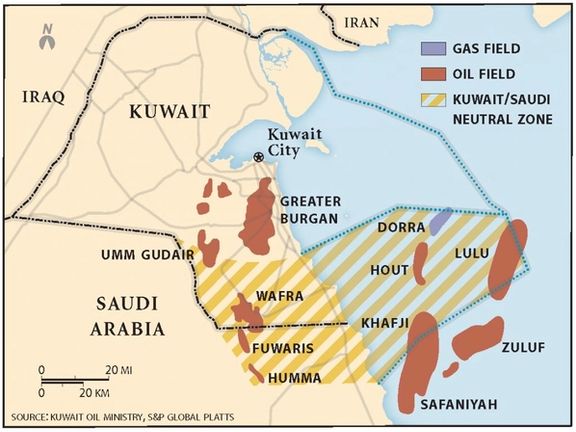
Kuwait says the disputed Arash/Durra gas field in the Persian Gulf is “exclusively owned” by the Persian Gulf nation and its neighbor Saudi Arabia.

Kuwait says the disputed Arash/Durra gas field in the Persian Gulf is “exclusively owned” by the Persian Gulf nation and its neighbor Saudi Arabia.
Iran “is not part of the gas field” and is not a party to development projects related to it, Kuwait’s official news agency Kuna quoted Foreign Minister Sheikh Ahmad Nasser al-Mohammad al-Sabah as saying in a tweet on Tuesday.
The comments came hours after the minister said that the gas field, located on maritime borders of Iran, Kuwait and Saudi Arabia, was a tripartite issue between these countries.
He later explained that these remarks meant Iran could be involved in talks on the demarcation of the continental shelf where the gas field is located.
Iran has branded "illegal" an agreement reached between Kuwait and Saudi Arabia on March 21 to develop the gas field, insisting on its right to also exploit it.
The Kuwaiti-Saudi move came amid soaring energy prices on world markets following Russia's invasion of Ukraine.
Iranian Oil Minister Javad Owji said Monday that Tehran would soon begin drilling in the area after having completed “comprehensive studies…by drilling exploration wells and conducting seismic surveys”.
The Arash/Durra field, discovered in 1967 where maritime borders are unclear, has reserves of around 20 trillion cubic feet (ft3) of gas, enabling a potential daily output of 1 billion ft3 and 84,000 barrels of condensates.
“Even if the border is not demarcated, the field can be developed jointly using internationally tested models,” Iran’s Deputy Oil Minister for International Affairs Ahmad Asadzadeh said Sunday.
Iran had delayed its development pending a decision on maritime borders, he added.
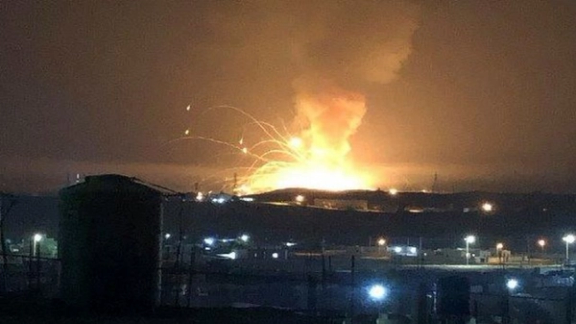
An Iranian website has denied a claim that Iran's March 13 missile attack on Erbil was meant to derail a plan to pump Kurdish gas to Turkey and Europe.
The influential Nour News argued Thursday that Iraqi Kurdish officials had come up with the explanation to divert attention from Israeli intelligence operating in the autonomous Kurdish region in northern Iraq.
"The disinformation campaign…stage-managed by Reuters, is not only devoid of truth but also aimed at covering up the scandal of anti-security cooperation of a section of the ruling group in Iraqi Kurdistan with the Zionist regime and the United States," Nour News wrote under the headline "Generous Betrayal Of Iraqi People's Interests To Absolve Mossad."
A Reuters report Monday cited anonymous Iraqi and Turkish officials that while Iran's attack carried several messages, a key trigger was a plan to pump Kurdish gas into Turkey and Europe to take advantage of uncertainties over Russia supplies after the Ukraine crisis.
Iran’s 12-missile attack, which hit a villa near the US consulate, was claimed by Tehran as hitting an Israeli intelligence center and variously seen as a response to an Israeli airstrike in Syria that killed two Iranian soldiers or to an Israeli attack February on drones at an airfield in Kermanshah province.
Many were surprised that the attack took place amid Iran's nuclear talks with world powers.
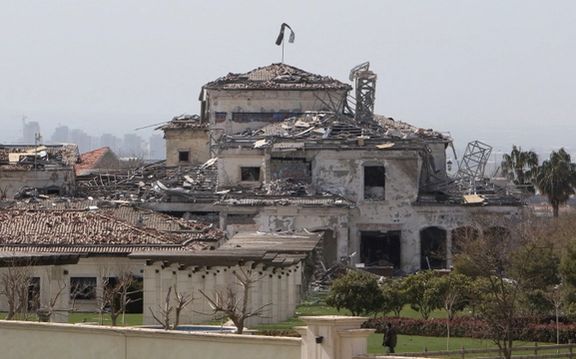
Pipeline project
"There had been two recent meetings between Israeli and US energy officials and specialists at the villa to discuss shipping Kurdistan gas to Turkey via a new pipeline," an Iraqi security official told Reuters. The agency claimed two Turkish officials had confirmed talks involving US and Israeli officials to discuss Iraq supplying Turkey and Europe with natural gas.
The office of Iraqi Kurdish President Nechirvan Barzani denied that the Erbil villa, owned by a Kurdish businessman involved in the Kurdistan energy sector, had been used by US and Israeli officials to discuss a pipeline project.
In response to the Reuters report, Kurdish Prime Minister Masrour Barzani denied claims Tuesday that Kurdish officials had held talks with Israelis over gas and accused Iran of launching the attack on Erbil to influence the choice of Iraqi prime minister in fear that “the influence it has gained in recent years in this country will go away.” Barzani’s Kurdistan Democratic Party is allied with the Shia bloc of cleric Moqtada Sadr, and the Arab Sunni Taqadum, led by house speaker Mohammed al-Halbousi.
But a Reuters report Tuesday noted Barzani had also told the World Government Forum in Dubai that developing oil and gas in Iraq's Kurdish region might not be in Iran's interest, presumably as Tehran also eyes European markets.
While Iran's foreign ministry and state media have not commented on Reuters’ claims over the Erbil attack, Nour News is affiliated to the Secretary of Iran's Supreme National Security Council (SNSC), Ali Shamkhani.

As the Saudi-led coalition in Yemen has announced a ceasefire, Iran-backed Houthis have called the measure “meaningless” if the siege against the rebels is in full effect.
Mohammed al-Bukhaiti, a senior member of Ansarullah's political bureau made the comment in a post on his Twitter page on Wednesday, a few hours after the coalition halted military operations for the holy Muslim month of Ramadan.
“The Yemen blockade is considered a military action because it was imposed by force of arms. If the siege is not lifted, the coalition’s announcement of the cessation of military operations will be meaningless”, he said.
The cessation of military operations coincides with the launch of Yemeni-Yemeni consultations that began at the GCC headquarters in Saudi Arabia on Wednesday and are expected to run until April 7.
The US special envoy for Yemen, Tim Lenderking, appreciated the Arab Coalition’s decision to start a ceasefire, saying that Washington encourages the recent announcement.
“A peaceful solution is the only way to end the crisis in Yemen,” the Secretary General of the GCC Nayef al-Hajraf said during a speech at the opening session, noting “the Riyadh Agreement constitutes a road map in Yemen and the completion of its provisions is a Yemeni demand.”
The United States, its Western allies and others blame Iran’s drones and missiles for attacks by Houthis on Saudi and Emirati energy facilities.
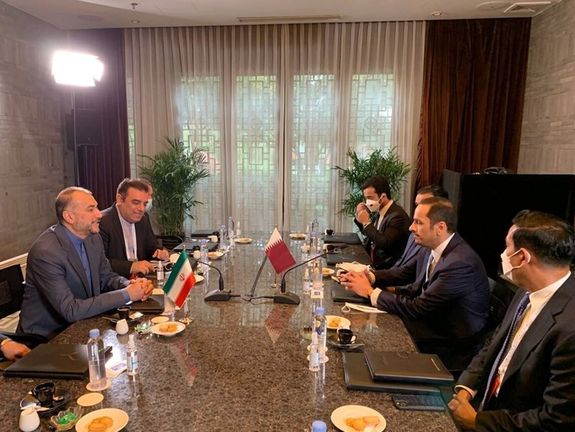
The United States, China and Russia will discuss Afghanistan on the sidelines of a two-day meeting of neighboring countries in the Chinese province of Anhui.
Tom West, the US special representative for Afghanistan, will also attend a meeting of the so-called ‘extended troika,’ China, Russia and the US plus Pakistan, a US State Department spokesperson said.
Separately an on-line pledging event on humanitarian assistance for Afghanistan takes place Thursday convened by United Nation Secretary-General António Guterres. Including Germany, Qatar, and the United Kingdom, it is not expected to discuss calls for the US and Europe to release $9 billion of Afghan foreign exchange, so enabling the government to pay bills and salaries.
The talks come with 98 percent of Afghans short of food in an economic crisis heightened since August’s US military withdrawal, but prospects for unfreezing Afghan assets appear to have receded with European and the US criticizing a Taliban decision to preclude girls from secondary schools.
In his first visit to China since Russian invaded Ukraine, Foreign Minister Sergei Lavrov met Chinese Foreign Minister Wang Yi, who is hosting the meetings on Afghanistan, which are set to include representatives from the Taliban as well as neighboring Pakistan, Iran, Tajikistan, Turkmenistan, and Uzbekistan. Qatar and Indonesia also attend.
Iranian Foreign Minister Hossein Amir-Abdollahian has already met with his Qatari counterpart Mohammed bin Abdulrahman bin Jassim al-Thani and Pakistani foreign minister Shah Mahmood Qureshi.
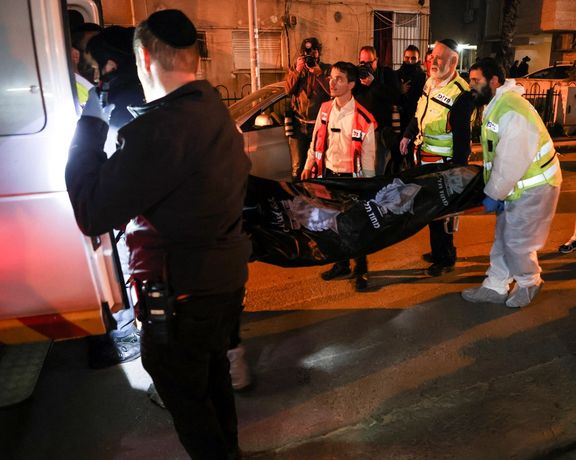
Iran-backed Lebanese Hezbollah has praised the attacker who killed five Israelis in a suburb of Tel Aviv in the third deadly attack of its kind in a week.
Describing the assailant who was shot dead as a “martyr”, Hezbollah issued a statement on Wednesday to reiterate its support for the attack on Tuesday in Bnei Brak (Video), one of the country's most populous ultra-Orthodox Jewish areas.
The statement said that normalization of relation with some Arab states will not provide security for Israel, nor will it reduce the “Palestinians' determination to liberate their land”, adding "there is no safe place for the occupation settlers and its soldiers”.
The Palestinian militant group Hamas, which governs the Gaza Strip, also praised the attack, saying, "We express our blessing to the Tel Aviv operation."
Iranian media affiliated with the Revolutionary Guard (IRGC) covered Hezbollah’s praise for the attack.
Al Mayadeen TV, a media close to the Lebanese militant organization, posted a video of Hezbollah forces celebrating the attack and distributing sweets among the people.
Palestinian President Mahmoud Abbas, however, condemned the killings of the Israelis and warned that the attack might lead to escalation at a time when "we are striving for stability".
Israeli Prime Minister Naftali Bennett told an emergency security meeting that "Israel is facing a wave of murderous Arab terrorism. We will fight terror with perseverance, stubbornness and an iron fist."
US Secretary of State Antony Blinken also condemned the attack, saying, "This violence is unacceptable”.
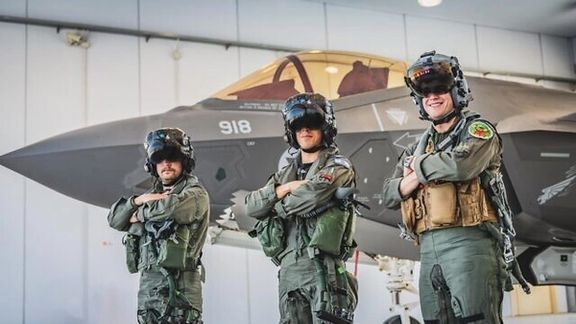
Unnamed Israeli military officials have told local media that an air defense pact with friendly regional countries is in the works to confront Iranian threats.
The news comes in the wake of a two-day meeting on March 27-28 in Israel, dubbed the ‘Negev Summit’ that brought together foreign ministers from four Arab states, Israel and the United States.
The officials, speaking to Hebrew language media said that Israel may soon sign an “alliance” with regional partners to confront Iranian drones and missiles. According to these officials, already a system has been established to jointly track Iranian air activities in the region.
The United Arab Emirates and Bahrain, now having full diplomatic relations and cooperation with Israel fall within the immediate Iranian threat zone. Saudi Arabia, which has not normalized relations with Israel due to the Palestinian issue, is said to have secret ties with the Jewish state, as both countries share deep concerns over Iran.
Houthi rebels, assisted by Iranian military hardware, have been launching regular attacks against Saudi Arabia. Just last week, a fierce Houthi drone and missile attack hit oil installations in the country at a time of high oil prices and uncertainty about Russian energy supplies to world markets.
The UAE and Bahrain, geographically closer to Iran, can play an important role in strengthening a coordinated detection and air defense system.
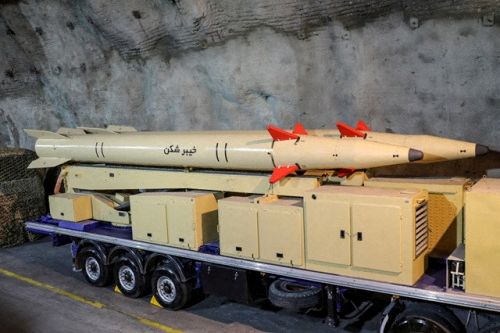
As Iran proliferates military drones among its proxy forces in the region, threatening Israel and others, the officials quoted by the media confirmed that hundreds of air strikes have taken place against Iranian targets in the region. Since 2017, Iranian forces and bases in Syria have sustained regular air strikes, but Israel had rarely taken responsibility.
Meanwhile, US Secretary of State Antony Blinken, having attended the Negev Summit, continued his efforts to reassure Arab allies in the Persian Gulf of American commitment to their security.
Blinken met with Abu Dhabi Crown Prince Sheikh Mohammed bin Zayed al-Nahyan, de facto ruler of the United Arab Emirates, in Morocco. Unusually for a US secretary of state, Blinken's trip to the Middle East and North Africa did not include any stops in the Persian Gulf monarchies or talks with Saudi officials.
Washington's Arab allies chafe at what they see as declining US commitment to security in their region in the face of Iranian involvement in Yemen, Iraq, Syria and Lebanon which has nudged them into common cause with former arch-foe Israel.
"We have real challenges to confront together, in the region and beyond," Blinken said at the start of the meeting with Sheikh Mohammed at the crown prince's private residence in Rabat.
The first challenge Blinken cited was a series of missile attacks by the Houthis against the UAE and Saudi Arabia.
"We're determined to do everything we can to help you defend yourselves effectively against that," Blinken said, adding that he would also consult the Emirati leader on attempts to revive the 2015 Iran nuclear deal and strengthening collective security regarding Iran.
Sheikh Mohammed said the meeting was "a very important opportunity" and "I'm sure we have a lot to talk about, especially our bilateral relationship."
Saudi and Emirati relations with Washington are strained because of a number of Biden administration policies, including removing Yemen’s Houthis from the US list of terrorist organizations and trying to revive the 2015 nuclear deal with Iran that would release tens of billions of dollars to Tehran apparently without adequate guarantees of security for regional countries.